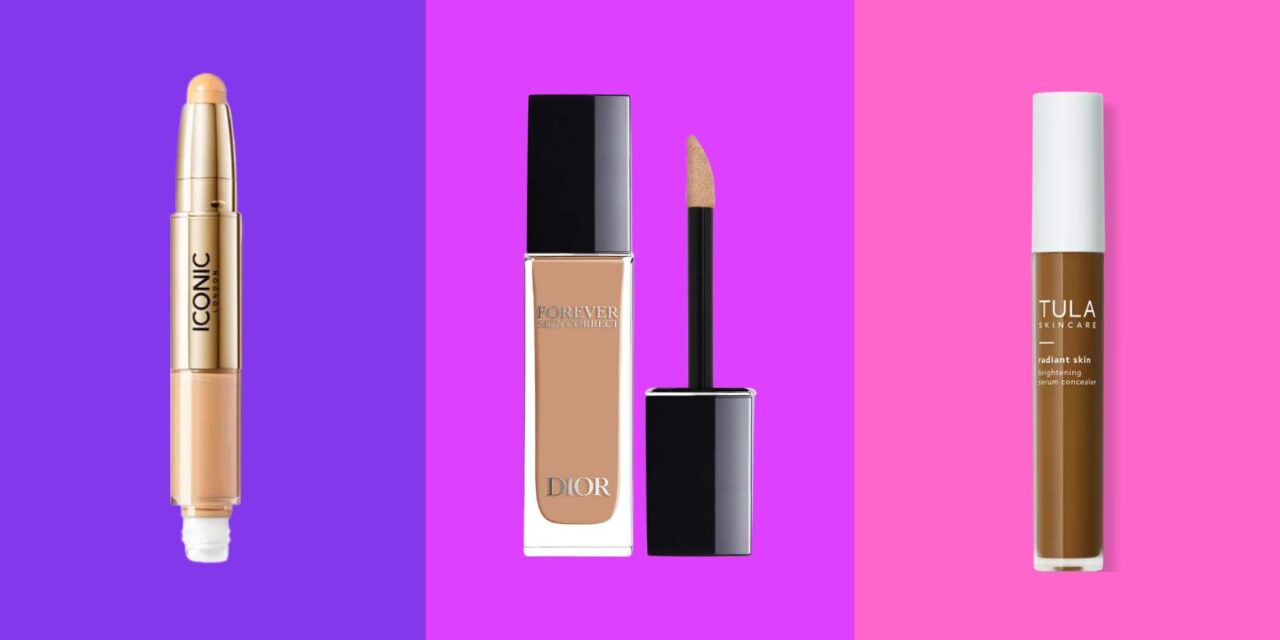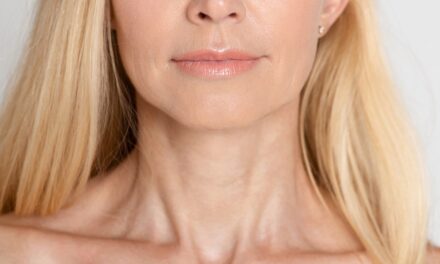
Many of us have used concealer since we started using makeup; but while we spent our teens and early 20s covering up acne flare-ups, we tend to expect a lot more from it as we age. It should cover everything from dark spots to under-eye circles—all while not settling into fine lines or emphasizing suddenly-much-drier skin. The best concealers for mature skin (like our top pick the Iconic London Radiant Concealer) last through the day without caking or creasing, have extensive shade options and also feature skin-benefitting ingredients.
The exercise of applying the wrong concealer can be frustrating, time-consuming and deflating. To help you choose the right one for your complexion needs, we’ve rounded up the best concealers for mature skin that cover hyperpigmentation, redness and dark circles—and brighten skin for a hydrated, youthful look.
Why Trust Forbes Vetted
The Forbes Vetted team knows that as skin matures and becomes more prone to dark spots, dryness and fine lines, applying concealer without creating telltale patches, cakiness or creases can be tricky. Veteran Forbes Vetted contributor Molly Calhoun has written about beauty, fashion and lifestyle for women’s magazines for 20 years, covering topics like foundations for dry skin and foundations for oily skin, neck-firming creams and sunscreens for sensitive skin. For this story, she consulted with dermatologist Dr. Leah Ansell of Treiber Dermatology Associates, Miami-based dermatologist and founder of eponymous skincare line Dr. Loretta Ciraldo and celebrity makeup artist Vincent Oquendo.
Finally, deputy editor Jane Sung edited this story. With more than a decade of experience covering beauty and grooming topics, she has rigorously tested and researched complexion products from established brands as well as newer standouts on the market.
How We Chose The Best Concealers For Mature Skin
To ensure we included the best of the best, we investigated proven concealer winners as well as lesser-known options. We tested many of the concealers on this list, paying careful attention to ease of application, coverage, length of wear and any creasing or patchiness. We also asked Ansell for advice on what to consider when choosing a concealer for mature skin, including must-have ingredients, go-to formulas and application tips for difficult areas.
How To Choose A Concealer For Mature Skin
As part of the natural aging process, there’s a natural decrease in collagen production, and skin changes occur from cumulative sun exposure, environmental stressors and hormonal changes, Ansell says. “This can manifest as wrinkles,’crepey skin, textural changes, pigmentary changes, hollows and volume loss as the contour of the face and skin changes,” she says. Paying careful attention when selecting a concealer is critical; here’s what to consider.
Shades
In general, the more shades a concealer comes in, the more likely you’ll be able to find a seamless color match, so look for brands that offer wide shade ranges. Many companies, like RMS Beauty, offer a “find my shade” feature on their websites that allow you to enter your foundation shade from a different brand to help you find the best match in their line. Ulta and Sephora offer this as well. Dior Beauty offers a virtual try-on of different shades.
When selecting your shade, also think about where you’ll be using concealer on your face because that may affect what you select. For instance, are you looking for an under-eye concealer, spot cover up or something that does it all? Typically, makeup artists will suggest testing a product on a few different areas, such as your forehead, jawline and nose. You may also want to take into account a slightly lighter shade for winter months, and one that’s somewhat deeper for the summer.
Ingredients
Skin at every stage requires careful attention to ingredients, but mature skin can be particularly complicated and it’s good to look for concealers that offer skin benefits. “Mature skin tends to be drier with more superficial fine lines and texture, therefore it’s important to look for a concealer that has hydrating ingredients that allow for a smooth application,” says Dr. Ansell. Even the perfect shade can look meh when applied over parched skin. “Added ingredients such as hyaluronic acid, glycerin or shea butter can help avoid a cake-like appearance. A concealer with a creamy texture is easier to apply without appearing cakey. “
Formula
Concealer formulas typically offer medium or full coverage, and many are buildable, which means you can start with a more sheer application and add on layers until you’re happy with the level of coverage. You’ll also want to pay attention to a concealer’s finish. Do you prefer lighter, sheer coverage, something radiant and luminous, or a more matte finish? Each of these can work well for mature skin, but it all depends on if you want a more natural look, something a little bit reflective or something velvety.
How Do You Keep Concealer From Creasing On Older Skin?
Certain areas with more delicate skin—such as the under-eye area—are more difficult to apply concealer, so moisture is key. “First, use a hydrating eye cream prior to application of concealer,” says Ansell. “This helps to avoid a cake-like application.” Also, overdoing concealer on mature skin can quickly take a turn for the worse.
“In my opinion, the less you put under the eyes the better and more likely your makeup will last longer,” says celebrity makeup artist Vincent Oquendo. First, he suggests using BioEffect Imprinting Eye Masks to hydrate under the eyes. “I would then recommend blotting off excess,” he says. “You really want your concealer to hug your skin.” Next, he advises applying Tula Skincare Radiant Brightening Serum Concealer “lightly to the inner corner of your eyes and possibly a little under your brow bone to lift and brighten.” Lastly, lightly dust your favorite loose powder under eyes to set it and have it last longer.
What’s The Best Concealer To Cover Up Age Spots?
Our pick for the best concealer for age spots is Ilia’s True Skin Concealer because it effectively covers hyperpigmentation, and it contains vitamin C so it treats hyperpigmentation too, improving the appearance of dark spots and brightening skin over time. Ultimately, the best concealer to cover dark spots for you is one that has enough coverage to conceal what you want with a finish you like. When selecting a concealer, it’s a good idea to look for something with buildable coverage.
Should Concealer Go Over Or Under Foundation?
This is a source of constant debate amongst professionals and concealer users. In general, most makeup experts advise applying foundation first and then concealer. This is because foundation is typically thinner in consistency than concealer, and if you apply concealer first you may end up with patchy spots. However, when covering undereye circles, you usually want to apply concealer before foundation to get the skin benefits that many under-eye products address.





